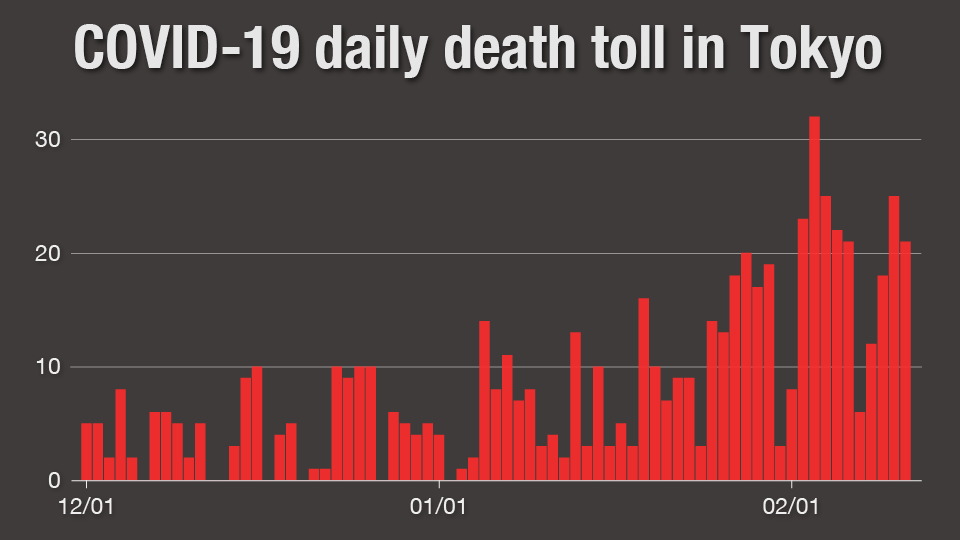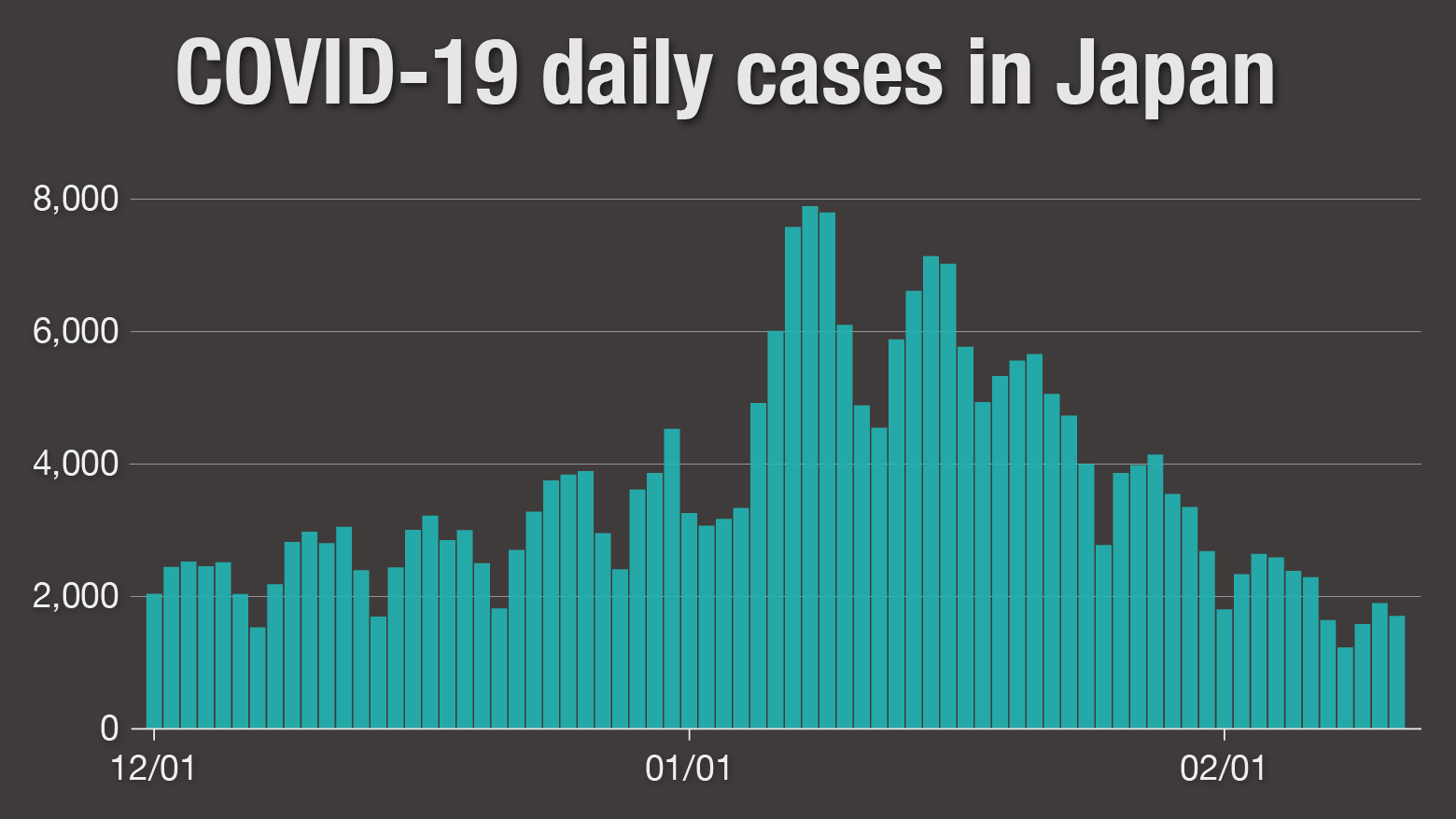Economic Revitalization Minister Nishimura Yasutoshi said on Friday that the government will maintain the state of emergency for the time being.
Nishimura was speaking at a meeting of a panel of experts to advise the government on coronavirus policy. The meeting's members agreed to update their basic anti-coronavirus guidelines to reflect recent legal revisions that allow tougher enforcement of anti-infection rules. The revised legislation was approved in the Diet earlier this month and will take effect on Saturday. It will allow officials to fine people and businesses that break anti-virus rules.
Death rate not decreasing
Tokyo reported 434 new cases on Thursday, the fifth straight day the number was below 500. But the number of deaths is not following the same trend. More than 120 people died from COVID-19 in the week through Thursday, almost the same as the week before.
The capital's panel of experts says the medical system should be on the highest alert level.
Inokuchi Masataka, Vice President of the Tokyo Medical Association, says the strain on the medical system has been continuing for a long time, and to ease that strain it is essential to reduce the number of elderly people contracting the virus, as they are at high risk of developing serious symptoms.

Virus variants in Japan
The head of the panel of experts, Omi Shigeru, says Friday's discussions centered mainly on the mutated strains of the virus first identified in the UK and South Africa. These variants are believed to be more transmissible than the original virus. Omi called for swift and thorough testing, including of asymptomatic people, in high-risk areas.
According to the health ministry, 108 cases had been found in Japan by February 10. Of those, 65 were confirmed outside airport quarantine rooms. All but four were the variant first reported in Britain. But the Director-General of the National Institute of Infectious Diseases, Wakita Takaji, said on Tuesday that they have been able to trace the routes of transmission in most of the cases, and he does not believe that the variant is spreading through communities.
A report by the World Health Organization, issued on Wednesday, says that three types of coronavirus variant are spreading around the world and they have an "escape mutation" that means they may be able to slip past vaccines or immunity to the original virus. The WHO says it plans to conduct further studies on the efficacy of the vaccines on the variants.
Researchers at the National Institute of Infectious Diseases have come up with a way to quickly detect the variant strains. In the past, researchers would have to decode all of the genetic information of a sample. Now, there's a PCR test for it. Institutes of public health across Japan are already using the new method.

